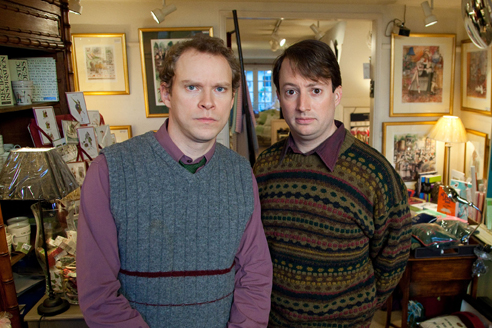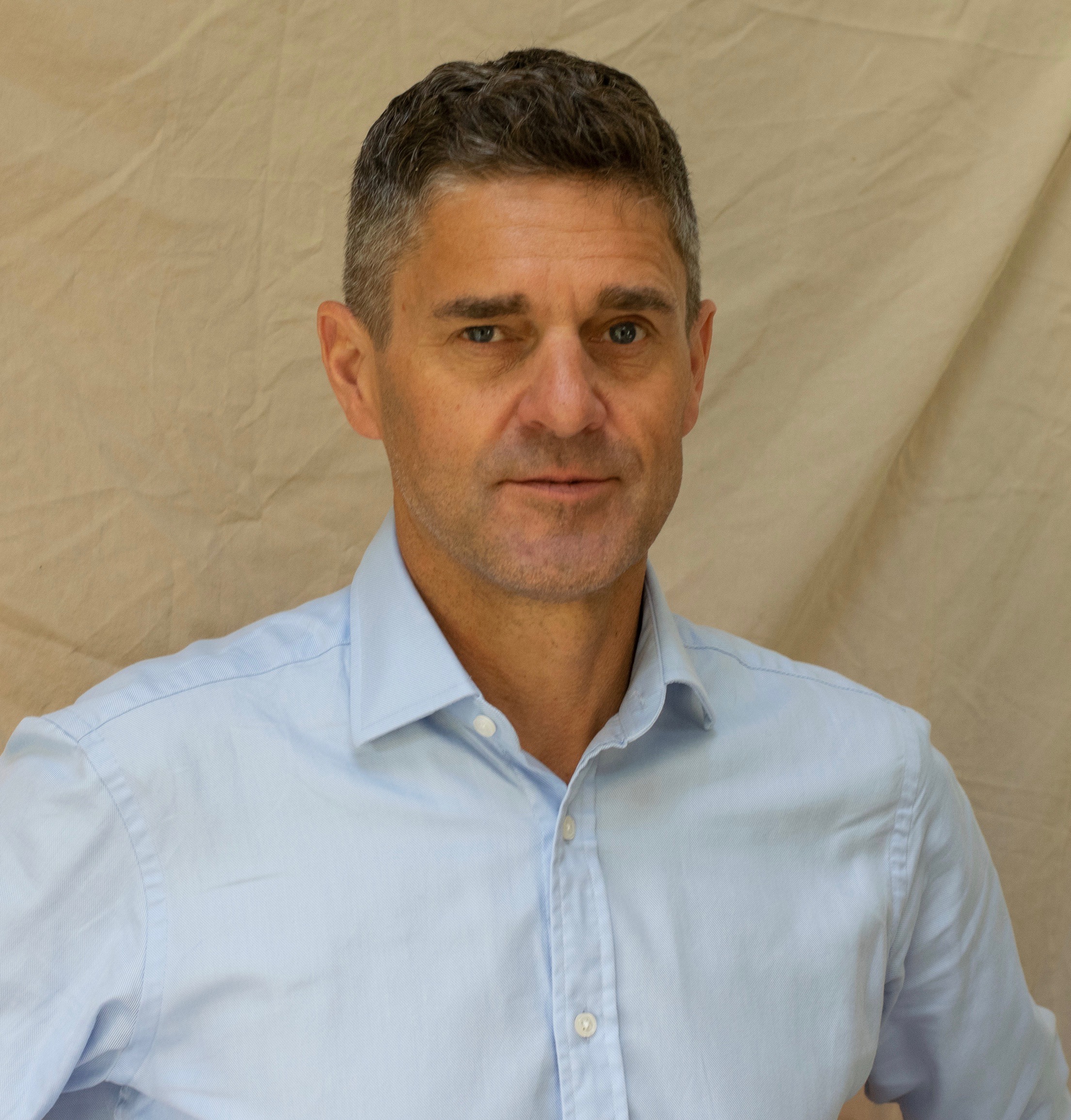That Mitchell and Webb interview

The latest updates, reviews and unmissable series to watch and more!
You are now subscribed
Your newsletter sign-up was successful
Want to add more newsletters?

ONCE A WEEK
What to Watch
Get all the latest TV news and movie reviews, streaming recommendations and exclusive interviews sent directly to your inbox each week in a newsletter put together by our experts just for you.

ONCE A WEEK
What to Watch Soapbox
Sign up to our new soap newsletter to get all the latest news, spoilers and gossip from the biggest US soaps sent straight to your inbox… so you never miss a moment of the drama!
Comedy double act David Mitchell and Robert Webb return with a new series of their sketch show on BBC2 each Tuesday... In the last series of That Mitchell and Webb Look, there was a sketch in which the comedy duo discussed their show, with Robert Webb asking David Mitchell: ‘We've done two hit-and-miss series now. Can’t we go for something different?’ Fortunately, despite his misgivings, the duo are back this week with a fourth series of the award-winning show. TV&Satellite Week magazine sat them down to talk funny business and find out more... What distinguishes That Mitchell & Webb Look from other sketch shows? Robert Webb “It’s very ideas-led, rather than funny voice-led or performance-led. If you compare us with Little Britain’s Matt Lucas and David Walliams, they’ll start from the point of ‘Here’s a funny character, and here’s a funny way of talking’. Our starting point always has to be a funny idea, and we both like silly, wordy things.” Does it attract a different audience to Peep Show? Webb “This show has a slightly broader appeal than Peep Show, which attracts a younger audience.” David Mitchell “There’s a misconception, in my opinion, that Peep Show is a boy’s show. It’s got that reputation and Nuts and Zoo magazines love us – I’ve no idea why.” Are there any sketches you wanted to do for this series, but couldn’t? Webb “There was a sketch for which we needed five different pub locations. It was about what’s happened to all the old men you used to see in pubs – where did they all go? It turns out they are all in one big pub.” Mitchell “We wanted to open the door and see the largest pub you could imagine, full of old men with dogs on strings and smoking cheroots.” Has the writing process changed much? Webb “Not really. I still write with David in his former council property where he insists on living because he can’t be bothered to buy the really nice house he could afford.” Mitchell “We’ve got better at turning ideas into sketches. Early on, you just don’t know how to go about it.” Webb “We have a voting system. We give sketches points out of five, and occasionally you can play your joker. Mitchell “Only we are now allowed half-points, so it might as well be points out of 10.” Are there any subjects you avoid writing jokes about? Webb “There are no areas you can’t go into. But, wherever you go, it could be a sensitive area for someone. For instance, if your mother was killed by a load of bananas falling on her, bananas aren’t funny.” Can you remember the first sketch you wrote together? Webb “It was called War Farce and it was a bad idea about a sort of Ray Cooney-style farce set in World War I. Artistically it was a total disaster, but we really made each other laugh while we were writing it.” Mitchell “Then we read it out to some friends and were greeted with total silence. " Is there still life in the sketch show? Mitchell “It baffles me that people say the sketch show is going to be dead as a format. What they mean is: ‘I saw a bad sketch show recently’.” Webb “Or ‘I saw 10 minutes of a bad sketch show recently’.” Mitchell “The sketch show is a very natural way to do comedy. No one ever says the sitcom’s finished. The sketch show and the sitcom are the two obvious ways to present comedy and they will continue in pretty much the basic form they’re in for ever.” How did people react when you first announced your intention to be comedians? Webb “I wanted to be an actor and comedian when I was 13. But I went to this sleepy, provincial grammar school where the most glamorous thing people could imagine me doing was be a teacher or a journalist. You didn’t go round saying ‘I want to be a comedian’, as it would invite a slightly patronising conversation. An intake of breath followed by ‘Aiming a little high, don’t you think, Robert?’” What else have you got in the pipeline? Webb “We’re supposed to be writing another book.” Mitchell “We should have written half of it by now, and we haven’t started. So it won’t be published nearly as soon as they want.” Webb “Nobody, including the publishers, need hold their breath.”
The latest updates, reviews and unmissable series to watch and more!
Patrick McLennan is a London-based journalist and documentary maker who has worked as a writer, sub-editor, digital editor and TV producer in the UK and New Zealand. His CV includes spells as a news producer at the BBC and TVNZ, as well as web editor for Time Inc UK. He has produced TV news and entertainment features on personalities as diverse as Nick Cave, Tom Hardy, Clive James, Jodie Marsh and Kevin Bacon and he co-produced and directed The Ponds, which has screened in UK cinemas, BBC Four and is currently available on Netflix.
An entertainment writer with a diverse taste in TV and film, he lists Seinfeld, The Sopranos, The Chase, The Thick of It and Detectorists among his favourite shows, but steers well clear of most sci-fi.


